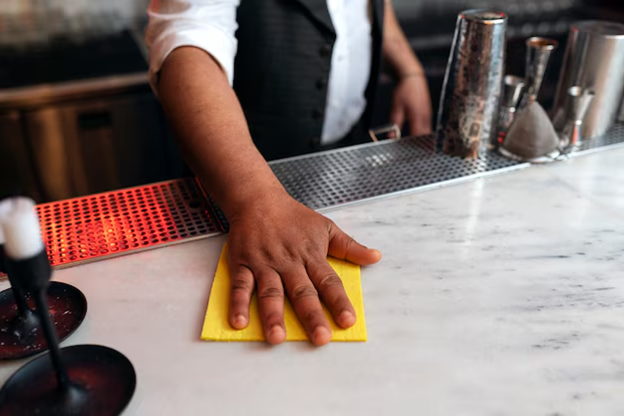
Maintaining a clean and safe environment in commercial kitchens is crucial for the health of both employees and customers. Health hazards can arise from various sources, including improper sanitation, pest infestations, and equipment malfunctions. This article discusses effective strategies for preventing common health hazards in commercial kitchens, focusing on the importance of mold removal and restaurant kitchen hood cleaning.
Understanding Common Health Hazards
Commercial kitchens face unique challenges that can lead to health hazards. Some of the most common issues include:
- Foodborne Illnesses: Improper food handling and storage can lead to the growth of harmful bacteria, resulting in foodborne illnesses. Ensuring proper food safety practices is essential to prevent these risks.
- Mold Growth: Moisture accumulation in kitchens can lead to mold growth, which poses health risks to employees and customers. Mold can trigger allergies and respiratory issues, making it imperative to address moisture problems promptly.
- Grease Buildup: Grease accumulation in kitchen hoods and ducts can lead to fire hazards and poor air quality. Regular cleaning is necessary to prevent these risks.
Importance of Mold Removal
The mold removal is a critical aspect of maintaining a healthy commercial kitchen. Mold thrives in damp environments, making kitchens particularly vulnerable. Here are some key steps to prevent mold growth:
- Regular Inspections: Conduct routine inspections of the kitchen, focusing on areas prone to moisture, such as under sinks, around refrigerators, and near dishwashers. Early detection of mold can prevent larger infestations.
- Addressing Leaks: Promptly repair any plumbing leaks or water damage to eliminate sources of moisture. This includes fixing leaky faucets, pipes, and appliances.
- Proper Ventilation: Ensure that the kitchen is well-ventilated to reduce humidity levels. Installing exhaust fans can help remove excess moisture and prevent mold growth.
The Role of Restaurant Kitchen Hood Cleaning
The restaurant hood cleaning is essential for preventing health hazards and maintaining a safe cooking environment. The kitchen hood system plays a crucial role in removing smoke, heat, and grease from the air. However, if not properly maintained, it can become a significant fire hazard and contribute to poor air quality. Here’s why regular hood cleaning is vital:
- Fire Prevention: Grease buildup in kitchen hoods and ducts can ignite and lead to devastating fires. Regular cleaning removes this buildup, significantly reducing fire risks.
- Improved Air Quality: A clean kitchen hood system helps maintain good air quality by removing smoke and odors. This is essential for the comfort and health of kitchen staff and customers.
- Compliance with Regulations: Many health and safety regulations require regular kitchen hood cleaning. Failing to comply can result in fines, penalties, or even the closure of the establishment.
Conclusion
Preventing common health hazards in commercial kitchens is essential for maintaining a safe and healthy environment for employees and customers. By prioritizing mold removal and implementing regular restaurant kitchen hood cleaning, businesses can significantly reduce the risk of health hazards. Establishing effective cleaning protocols, training staff, and using eco-friendly products will further enhance kitchen safety and compliance with health regulations. By investing in these practices, commercial kitchens can create a safer, more efficient workspace that promotes the well-being of everyone involved.

